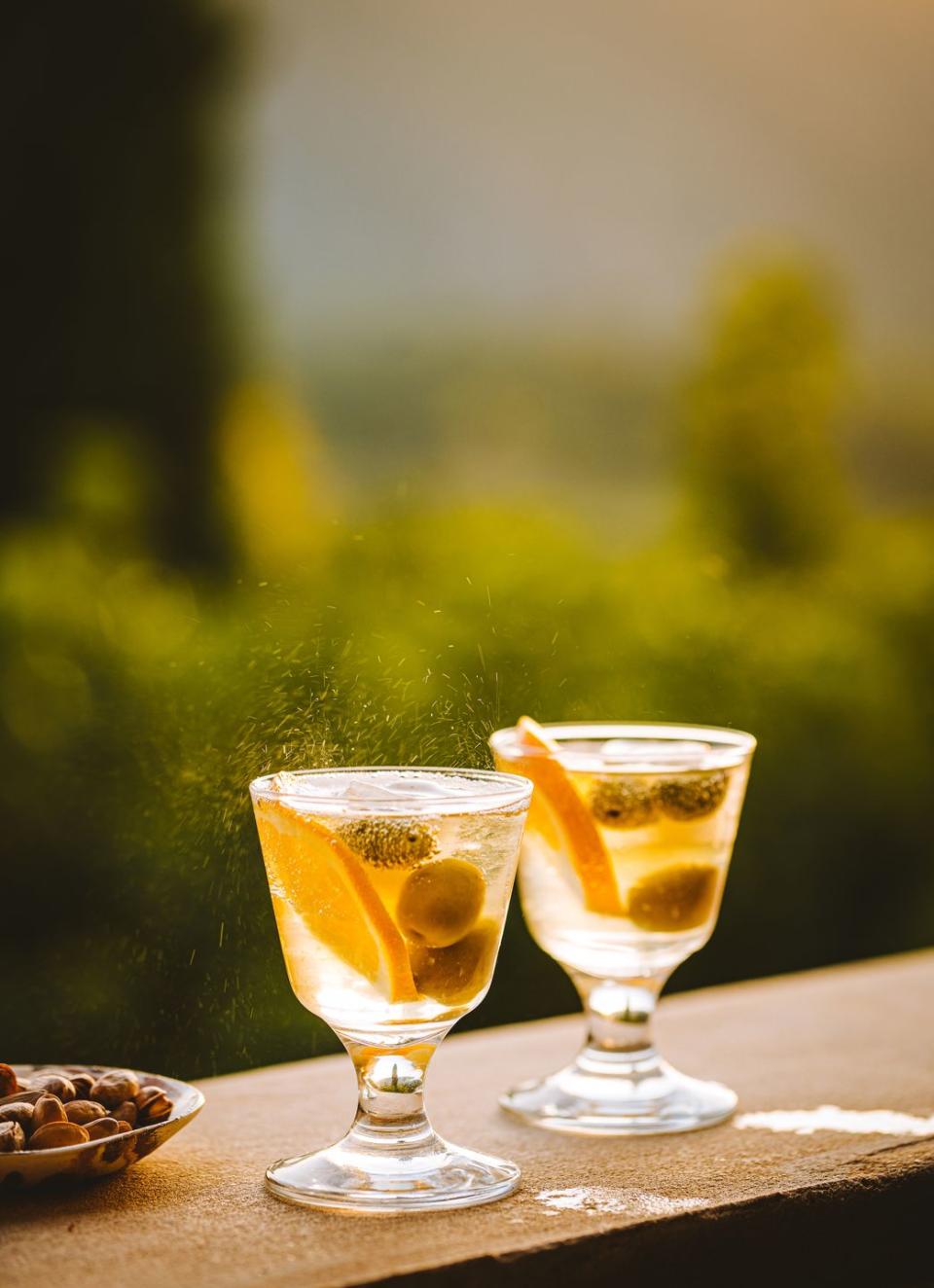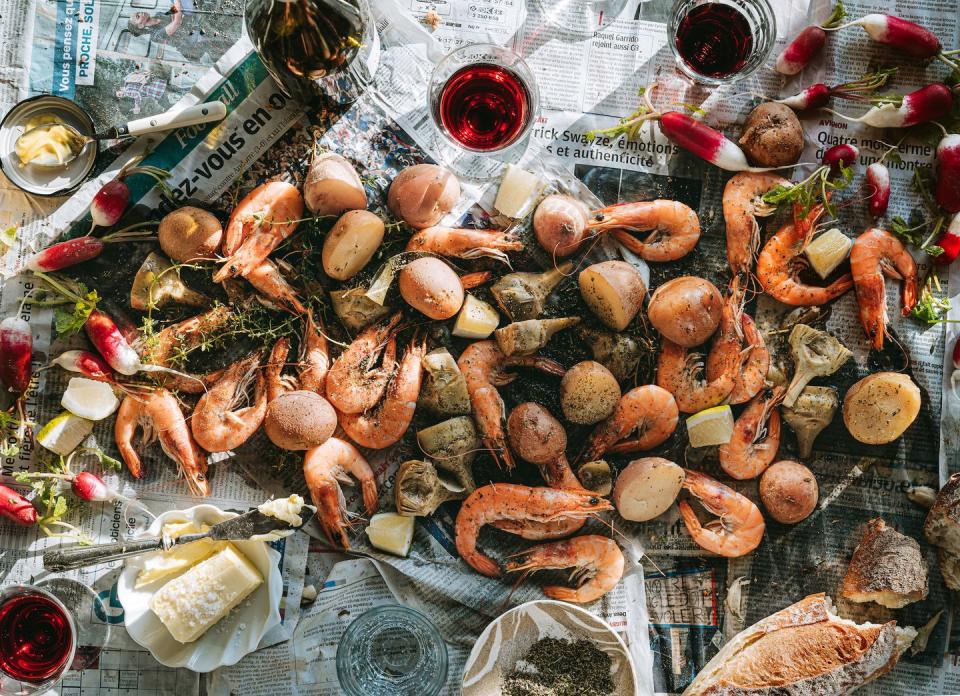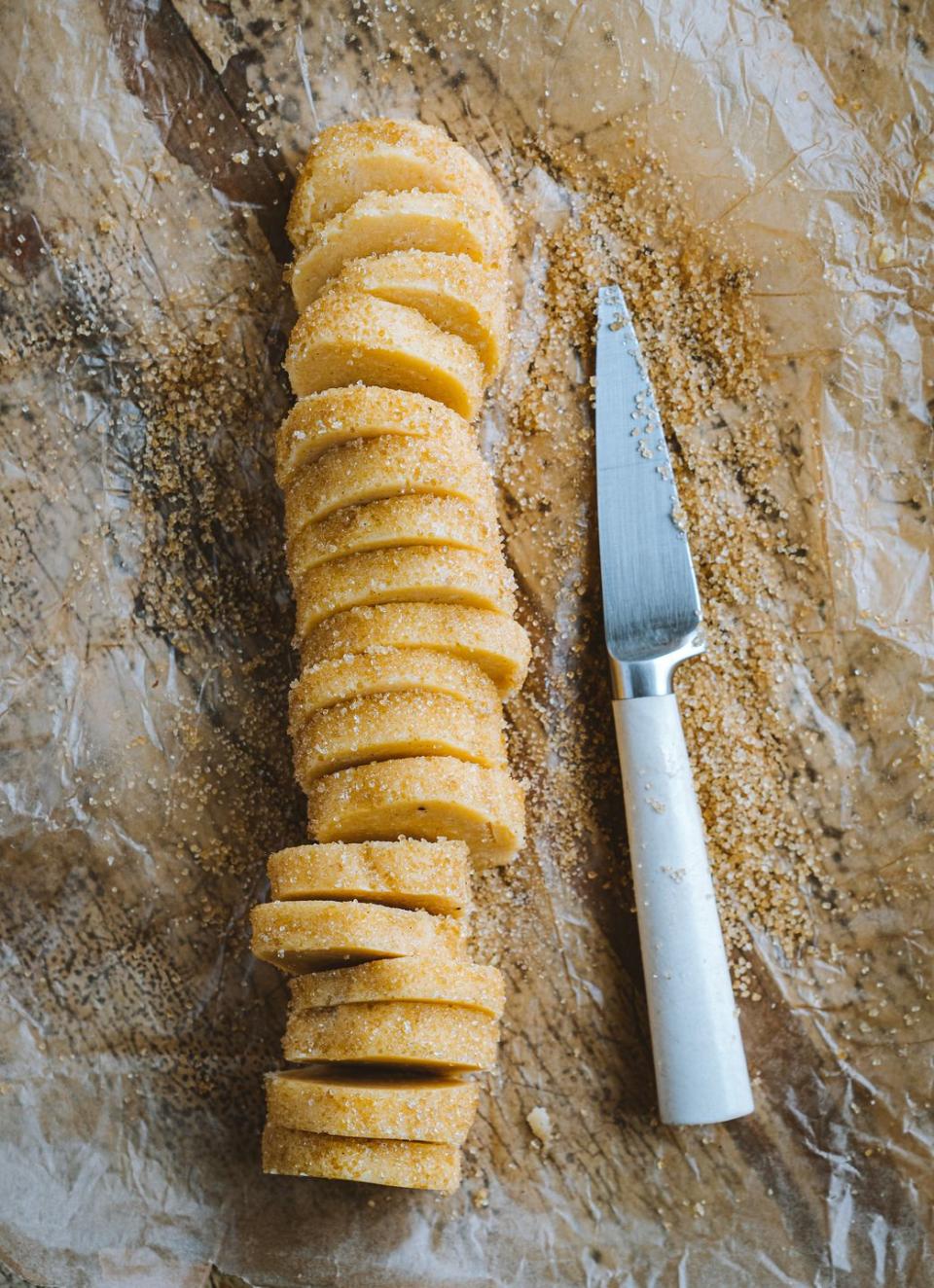Host Like a Parisian: Rebekah Peppler's New Book Teaches the Art of the French Dinner Party

“Hearst Magazines and Verizon Media may earn commission or revenue on some items through the links below.”
After years of hosting in miniscule apartments while living Brooklyn and Los Angeles, Rebekah Peppler moved to an apartment in Paris where she could finally fit a proper dinner table. A self-professed introvert, the food writer and stylist had made the trans-Atlantic move without knowing a soul (or the language) and originally began cultivating her community of creatives and foodies alike through l'apero, a French term for the culture's elevated take on the happy hour. People pour out onto the streets at golden hour to enjoy a low-alcohol beverage (or juice for the kids) and a few salty snacks with each other to stimulate the appetite before the real feast begins for the evening. This act inspired Peppler's first book, Apèritif: Cocktail Hour the French Way: A Recipe Book, which was a James Beard Award Finalist in 2018.
"Apero could last 20 minutes or three hours—it's not this whole-evening affair if you don't want it to be, and as an introvert, I needed that lovely little space upon moving," Peppler says. "I started making friends through this amazing culture, and once I had made all these new friends and was comfortable enough, it was an easy transition to then bring people into my home for dinner." It was only natural that her next book, À Table, highlights Peppler's evolution from a mere participant in Parisian drinking and dining culture to a modern French culinary, cocktail, and hosting savant.
How to Host Like a Parisian
"I think the beauty of French hosting is that the evening—or even lunch hour—starts with a drink and a snack," says Peppler. "It's meant to open your appetite, palate, and heart to the rest of the meal, and that's something we don't do in the States. There's often drinks with dinner, but it's not this focused, low-ABV cultural point to organically usher in the evening that France has."
Luckily, for those of us who haven't mastered the art of l'apero, Peppler's book is divided into three main categories: Before (Pre-Dinner Drinks + Snacks), During (Supper + Sides), and After (Sweet Snacks + Post-Dinner Drinks) to help us master the beautifully seamless flow of French entertaining. While this may seem like a big undertaking (and a lot of alcohol!), Peppler's book is full of simple recipes made with top-quality ingredients to create a modern yet timeless French meal without much fuss—plus, plenty of remarques, or notes, to help guide you in your journey to becoming a calm, cool, collected (and chic!) host.
"Outdoor entertaining in Paris is especially a dream, and not everyone in Paris has a balcony, but many do have access to a friends' and will come over to make the best use of it together," says Peppler, whose book features photographs shot in her dreamy home (with a balcony!) in the 18th arrondissement. "There's definitely an indoor-outdoor feel to hosting here, even while in the dead-center of the city, and I like to move to different spaces throughout the night. For apero, we often start on the balcony as a casual, standing affair with easy snacks, then move inside for dinner. Changing the scenery is a nice way to make different moments and create impact throughout the evening while remaining at home."
Before

Peppler also says apero often begins around a river or canal in Paris where everyone contributes something to the affair, bringing a bottle and a snack and that should translate to an at-home apero. "We all have our things we bring, and that's the nice thing about gathering in France," she says. "I can dictate the food and delegate the rest, and then we all combine it at the table together. It's important to remember that all the tasks you ask people to do, from bringing the cheese to supplying ice (she stresses the importance of having an ample supply of good ice in one of the book's remarques), they are all of equal importance."
Some of the author's favorite pre-dinner drinks to serve is her Bamboo Tonic and the Chaud Comme, both of which are light, bubbly beverages that bring a celebratory feel to the start of your affair. Peppler doesn't stress too much about the snacks and chooses to elevate simple bites, like her Roasted Olives with Lemon or Le Grand Aïoli II, which is an elevated aioli served with fresh, local produce and some more substantial nibbles, like hard-boiled eggs or tinned fish.
During

Peppler is a firm believer that the modern French table is anything but fussy. For her gatherings, it's more about quality than quantity. Two things you will always find on her dinner table are thoughtfully selected glasses that feel comfortable in her hand and linen napkins to elevate the occasion. She even brings these items out for picnics and apero en plein air.
"This book is full of easy things that rely on quality ingredients, allowing you to enjoy the meal with everyone else and actually be a part of the party," says Peppler. Whether you take on the star-worthy Coq Au Vermouth and Gratin Dauphinois or the casual yet festive French Shrimp Boil, À Table provides an exciting variety of approachable yet impressive French recipes to do just that: come and eat.
After

While Peppler does have a degree in French Pastry Arts, her after-dinner nibbles usually reflect her city's laid-back culture than the confections at the bakery around the corner.
"Desserts are important, and it's my favorite thing to make or bring to a dinner party, but they don't have to be anything big," she says. "Most desserts I serve are just little bites to savor or send home. One of my favorite things to do is send people home with a sachet of granola or the sablés from my book for people to eat when they get home or enjoy the next morning with coffee." She also notes that ending the night with a digestif is not only quintessentially French, but a natural final transition to wind down the evening.
"The digestif is often a higher-alcohol spirit compared to an aperitif, and I do try to mimic that in the book, but I don't like to end the night on super-hard spirits," says Peppler. "I love to serve a lot of wine throughout the evening, so the Aprés Spritz is a great example, with armagnac buoyed with sparkling lambrusco—which is lower in alcohol for wine but still robust. It's just fun to serve a little beautiful drink at the start and end of the meal to create a special feeling around the table and tell people that, oh, yeah, the night's not over just yet!"
While a dinner party often begins full of frenetic energy, from peeling off the coats and welcoming guests with a bubbly, spritz-y beverage, Peppler says you don't want to create this abrupt end to the evening after everyone has just gotten to know each other through the intimate act of sharing a meal. She says the digestif allows for one final shared moment together that actually caps the night.
"When we skip it, I feel a bit discombobulated, and I love this literal cap to a night with something sweet—or even a bite of cheese," she says. Peppler also loves to put out her prized nutcracker, a favorite bottle of wine to keep pouring sips, and a bit of chocolate to pair with your nuts of choice.
Reading through À Table highlights the importance that cooking, eating, and entertaining the French way only has to be as stressful and time-consuming as you want it to be. Peppler's book reinforces the fact that hosting like a Parisian is, yes, absolutely glamorous, but more because of its cool, casual feel than it being a stuffy affair designed to impress.
"The way the French entertain doesn't have you planning everything out to a T," says Peppler. "It's more of coming over to the house for a drink and maybe it becomes dinner, or maybe it's just inviting people over because you made a few things and want to snack together, which is such a French mindset but translates so well to this modern landscape and the way hosting at home has become less of a formality and more fun." Peppler's book ultimately reads less like a traditional French cookbook and more like your chic expat friend's insider guide to how the French actually live, eat, and imbibe, which is sure to inspire many authentic, Parisian-inspired dinner parties once the world is ready for them again.
You Might Also Like

